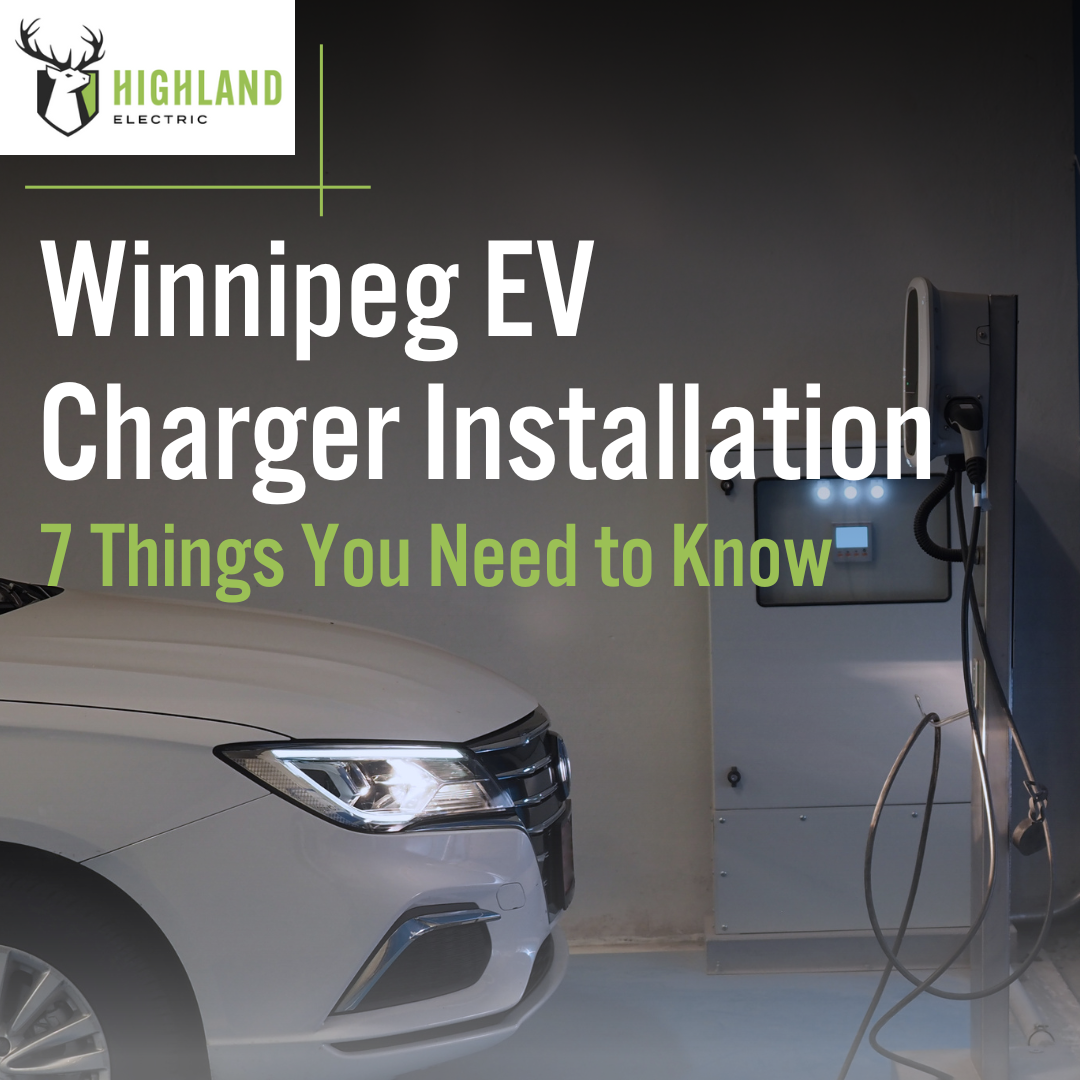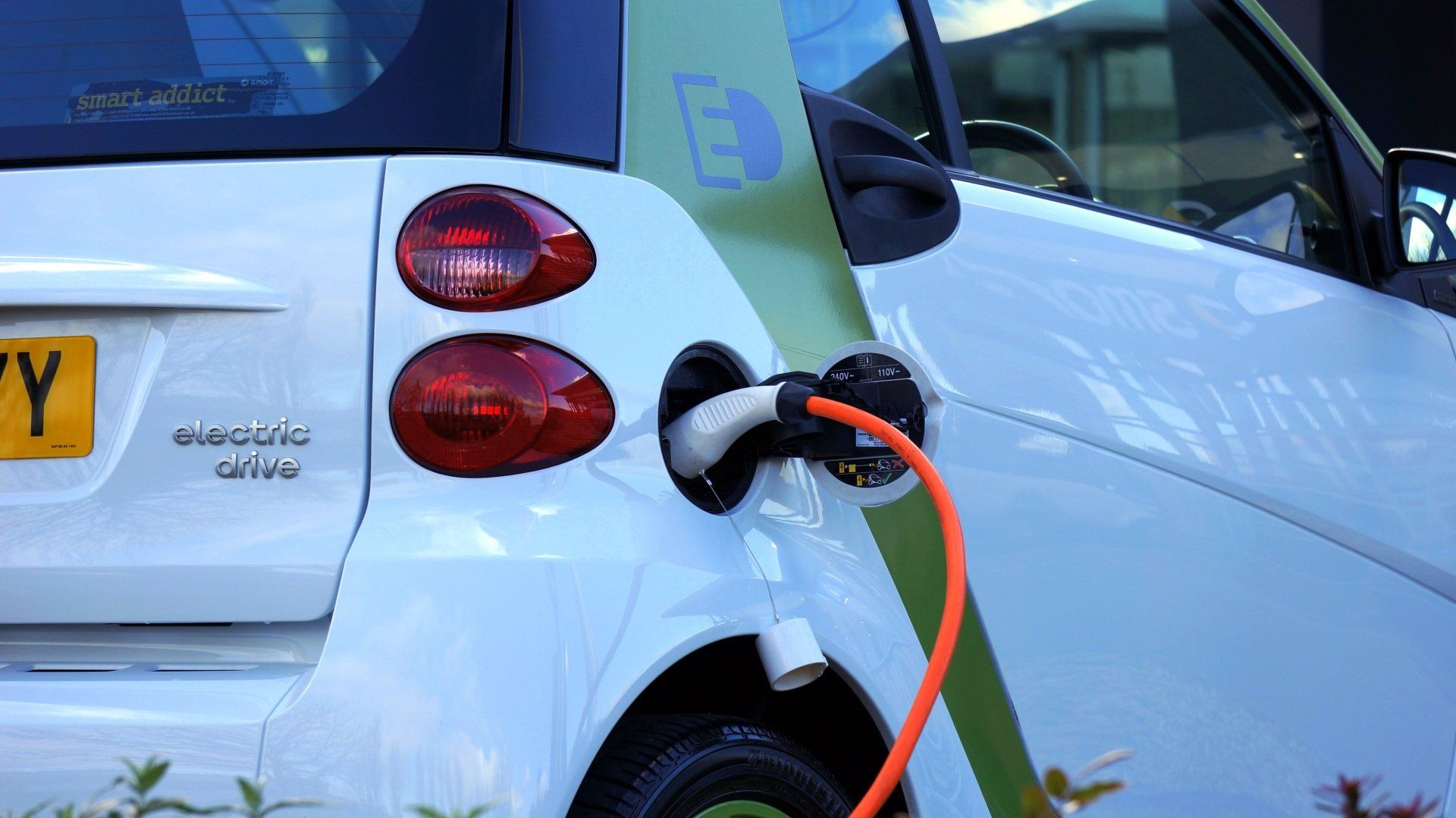Installing an Electric Vehicle Charging Station at Home
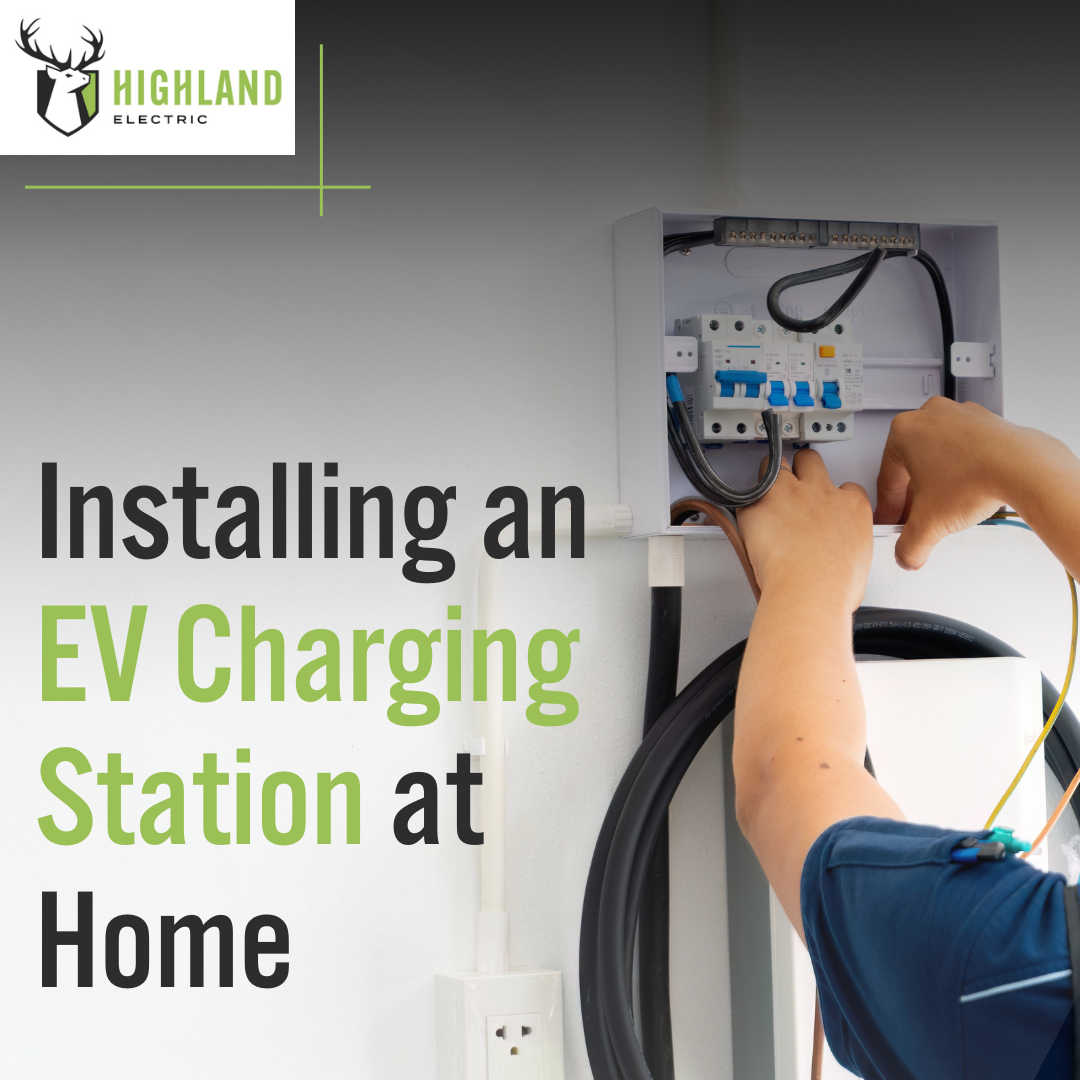
In the bustling, forward-moving city of Winnipeg, where the future drives on electric wheels, the excitement is palpable among environmentally-conscious homeowners and tech enthusiasts alike.
As an electrical company rooted in innovation and a fervent supporter of green energy, we're thrilled to guide you through the electrifying journey of installing an electric vehicle (EV) charging station at home. With the rise of electric vehicles, the need for a reliable home EV charging point has never been more critical. Here's why installing an EV charger at home is not just an upgrade, it's a leap into the future.
Why Install a Charging Station at Home?
Imagine the convenience of waking up each morning to a fully charged electric vehicle, ready to take on the day's adventures without ever having to worry about finding a charging station on your route.
By installing an EV charger at home, you can turn this vision into reality and experience unparalleled convenience and efficiency. Not only does a charge point home charger save you time, but it also provides the added benefit of reducing the need to visit public charging stations, allowing you to charge your electric vehicle conveniently and securely from the comfort of your own home.
This not only saves time, but also offers peace of mind, making the transition to electric vehicles even more seamless and enjoyable.
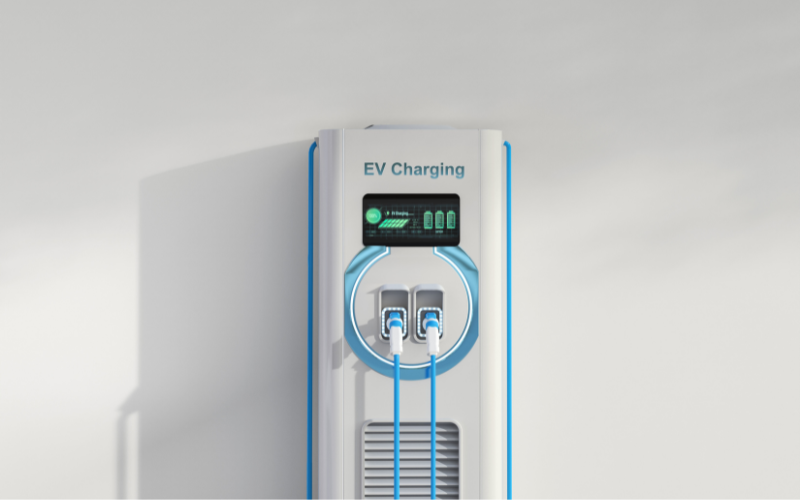
Choosing Your Home EV Charging Point
Choosing the right home EV charging point is a crucial decision for any electric vehicle owner.
It’s not just about selecting a charger; it’s about matching your lifestyle, vehicle requirements, and home capabilities to ensure that you get the most efficient and reliable charging experience.
Here’s a deeper dive into the factors you should consider when selecting your home EV charging point.
1. Understanding Charger Levels
The first step in choosing your home EV charging point is understanding the different levels of chargers available:
- Level 1 Chargers: These chargers use a standard 120V AC outlet, which means they can be used in any household outlet. While they are the most convenient and cost-effective option, they also offer the slowest charging speed, typically adding about 4-5 miles of range per hour of charging.
- Level 2 Chargers: These require a 240V AC outlet (similar to what your dryer or oven uses) and can charge your EV much faster, usually adding about 25-50 miles of range per hour. Most homeowners opt for a Level 2 charger for its balance between charging speed and installation cost.
2. Charging Speed and Power Requirements
Consider how quickly you want to charge your EV and whether your home’s electrical system can support your chosen charger. Level 2 chargers, for example, are preferable for their faster charging times but may require an upgrade to your home’s electrical panel. Discussing with a professional electrician can provide clarity on what upgrades are needed and the associated costs.
3. Compatibility with Your EV
Ensure the charger you select is compatible with your vehicle. Most EVs come with a standard connector that works with Level 2 chargers, but it’s essential to confirm this. If you own or plan to buy a Tesla, you might consider the Tesla Wall Connector for its seamless integration with your vehicle, though it’s worth noting that adapters are available to make Tesla chargers compatible with other EVs.
4. Smart Charging Features
Many modern EV chargers come with smart features that can enhance your charging experience.
These include:
- Wi-Fi Connectivity: Allowing you to control and monitor your charging from your smartphone.
- Scheduled Charging: To take advantage of off-peak electricity rates.
- Energy Usage Reports: Helping you track electricity consumption and costs.
Selecting a charger with these features can offer convenience and potentially save money over time.
5. Cost and Incentives
The cost of installing a home EV charging point can vary widely based on the charger type, necessary electrical upgrades, and installation labor. However, it’s worth investigating local incentives or rebates available for EV charger installation, as many regions offer financial incentives to encourage the adoption of electric vehicles.
6. Professional Installation
While some EV owners might consider a DIY installation, professional installation by a certified electrician is recommended to ensure safety, reliability, and compliance with local codes and regulations. An electrician specializing in EV charger installation can also provide valuable advice on the best placement for your charger and any necessary upgrades to your home’s electrical system.
In summary, choosing the right home EV charging point involves considering your charging speed needs, ensuring compatibility with your vehicle, evaluating smart charging features, understanding the cost and available incentives, and opting for professional installation. By carefully assessing these factors, you can select a home EV charging point that offers convenience, efficiency, and peace of mind, making your transition to electric vehicle ownership as smooth as possible.
The Installation Process
The process of installing an EV charger at home might seem daunting, but with the right electrician, it's a smooth and hassle-free experience. Our certified electricians specialize in EV charging installation, equipped with the knowledge and tools to ensure your charge point home charger is installed safely and efficiently.
The process typically involves:
1. Site Assessment:
Our team will first assess your home's electrical system to determine the best installation plan that meets your needs and ensures safety.
2. Choosing the Right Charger:
Whether it's a Tesla car charger for home or another model, we'll help you select the best charger based on your vehicle, charging speed requirements, and budget.
3. Permit and Regulations:
We handle all necessary permits and ensure that the installation complies with local regulations and standards.
4. Installation:
Our experienced electricians install your EV charger, taking care of all electrical connections and safety checks.
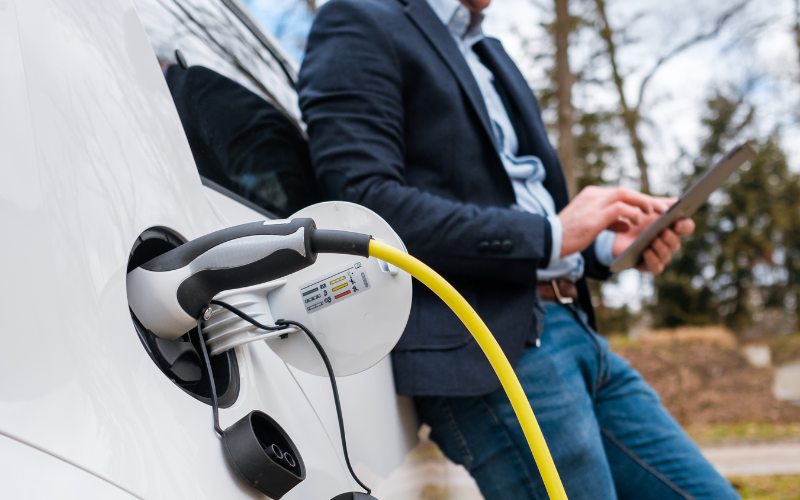
Benefits of Professional Installation
Choosing a professional electrician to install your EV charger comes with numerous benefits:
- Safety: Professional installation ensures that your home EV charging point is installed according to code, minimizing risks associated with electricity.
- Efficiency: A correctly installed charger operates more efficiently, providing faster charging times and optimal performance.
- Peace of Mind: Knowing that experienced professionals have handled the installation allows you to enjoy the benefits of your home charging station without worries.
Ready to Electrify Your Home?
As Winnipeg moves towards a greener future, installing an electric vehicle charging station at home is a significant step forward.
Not only does it offer convenience and efficiency, but it also supports the global shift towards sustainable energy. Whether you're installing a Tesla car charger for home or any other type of EV charger, our team is here to make the process seamless and stress-free.
Embrace the future of driving by installing an EV charger at home today.
Contact us to find out how we can electrify your home and contribute to a cleaner, greener planet.

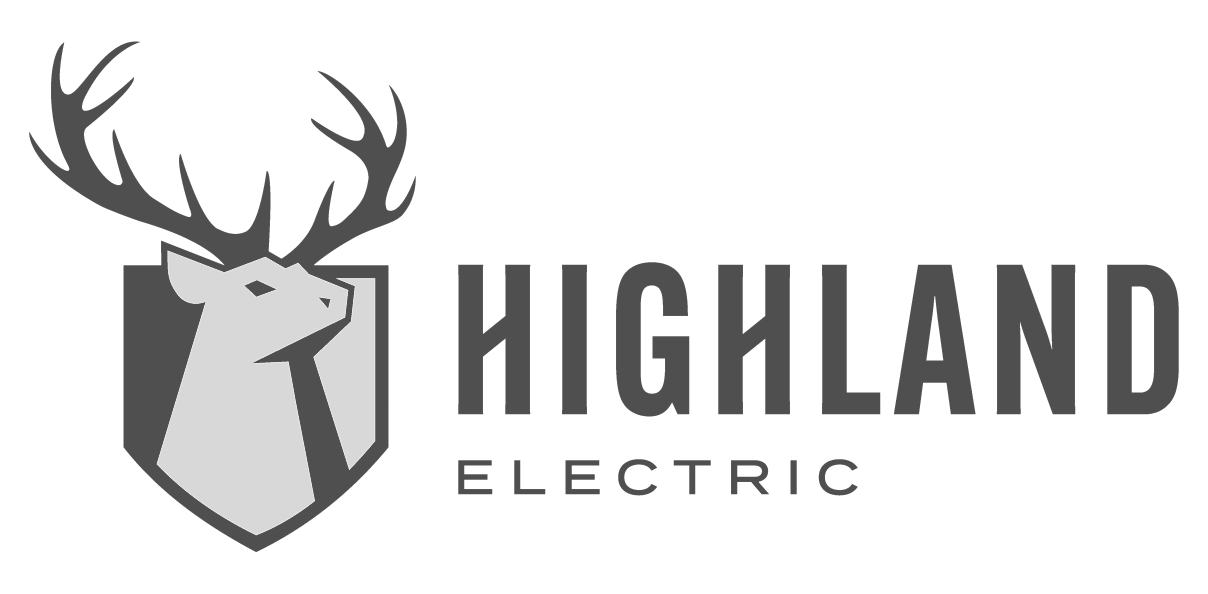
Company
Electrical Services
All Rights Reserved | Highland Electric Ltd.
Designed by Vantix Digital

